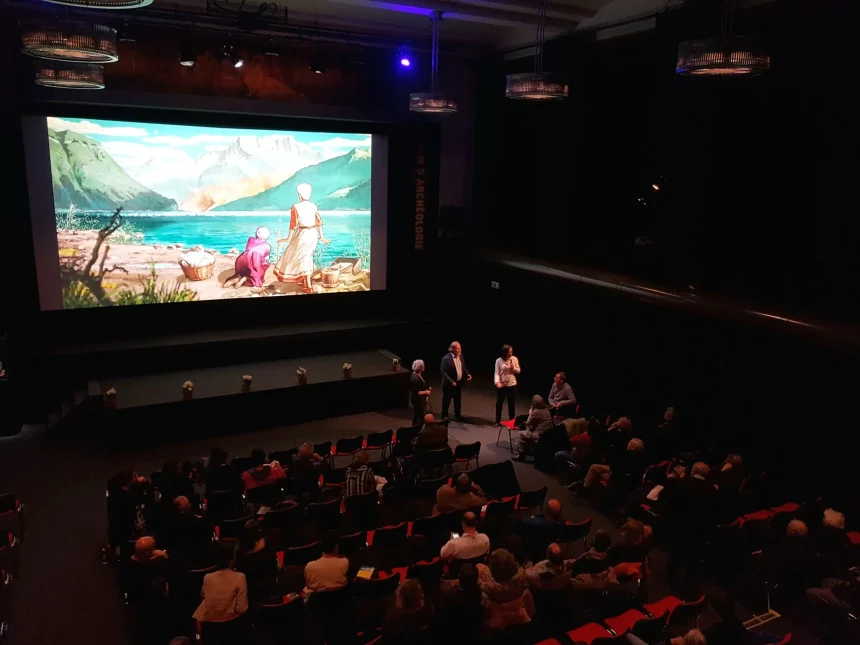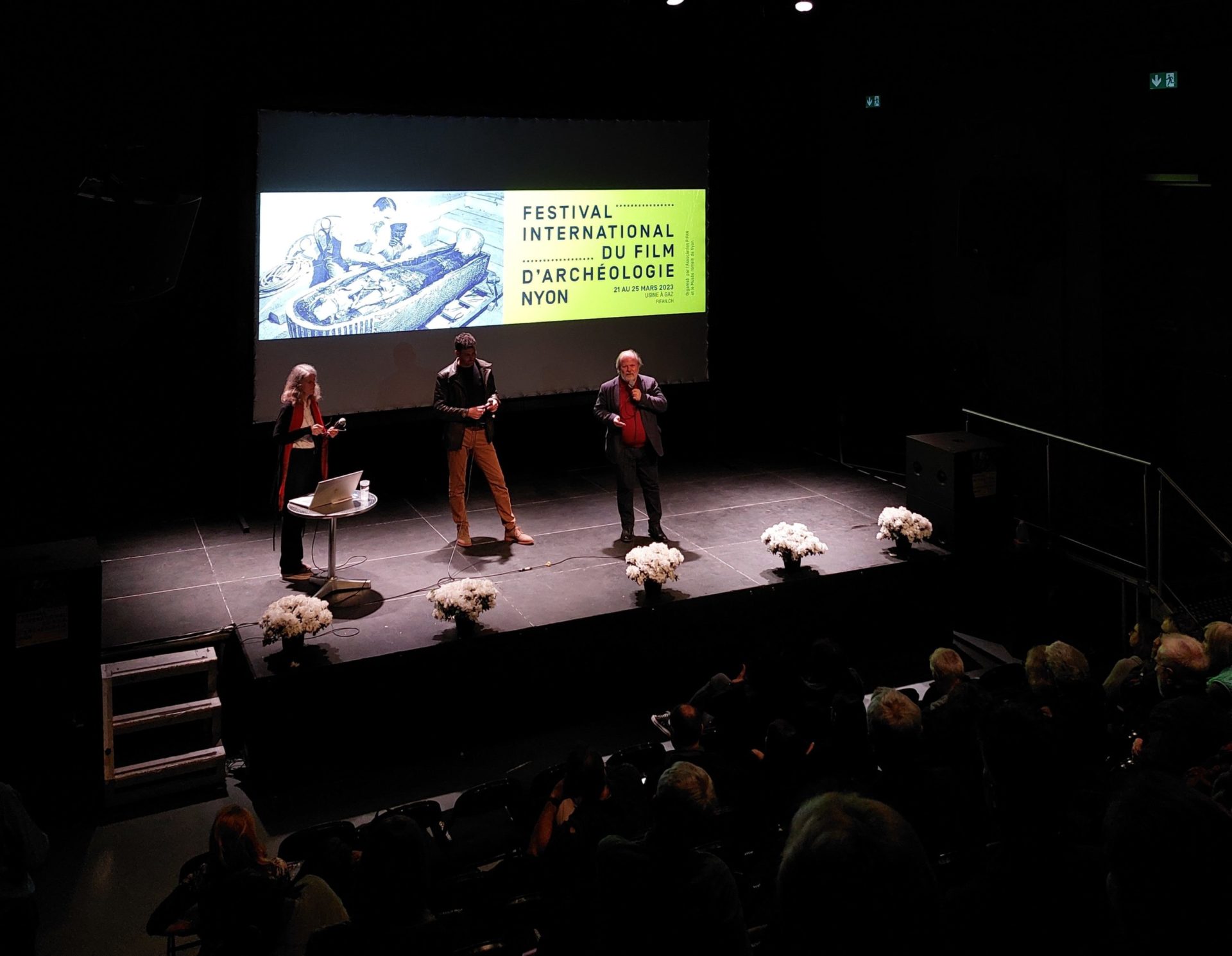
FRIDAY, SEPTEMBER 5 - 9:30 TO 11:45 A.M.

WEDNESDAY SEPTEMBER 3 - 9:30 to 11:45 a.m.
Moderated by: Laetitia Bochud and Patrick Michel
Speakers: creators and producers of immersive experiences, archaeologists
Round tables, lectures, hands-on workshops and networking sessions: the workshops offer a space for reflection, exchange and collaboration between players in the fields of cinema, archaeology and immersive technologies. Dedicated to professionals and open to the public, they question the contemporary challenges of heritage preservation and enhancement, while exploring the potential of audio-visual and digital tools to transform research and dissemination. They aim to foster synergies between disciplines, support innovation and strengthen links between professionals, to contribute to a better transmission of our cultural heritage.
Speakers: Emmanuelle Breiner ; Caecilia Charbonnier ; Olivier Reutenauer ; Thomas Sagory
Immersive technologies such as digital twins, augmented, mixed, and virtual reality enable historical reconstructions and offer new narrative opportunities to engage and invite audiences to (re)discover archaeological and cultural heritage. The ability to experience situations in reconstructed environments brings fresh perspectives to museum mediation tools and enhances the value of buried treasures and hidden stories.
We invite a panel of experts, including creators, directors, producers and broadcasters, to share their experience and knowledge of these new installation formats.
Speakers: Florence Graezer-Bideau ; François Daniel; Béatrice Joyeux-Prunel ; Thomas Sagory
This session is organized around two main themes. The first deals with the use of immersive experiences in scientific research: what uses, what methodologies, what contributions to the production of knowledge? The second deals with the ethical issues associated with these practices: access to data, international standards, transparency and scientific integrity, best practices, and relations with the local communities concerned.